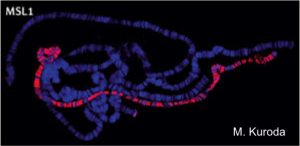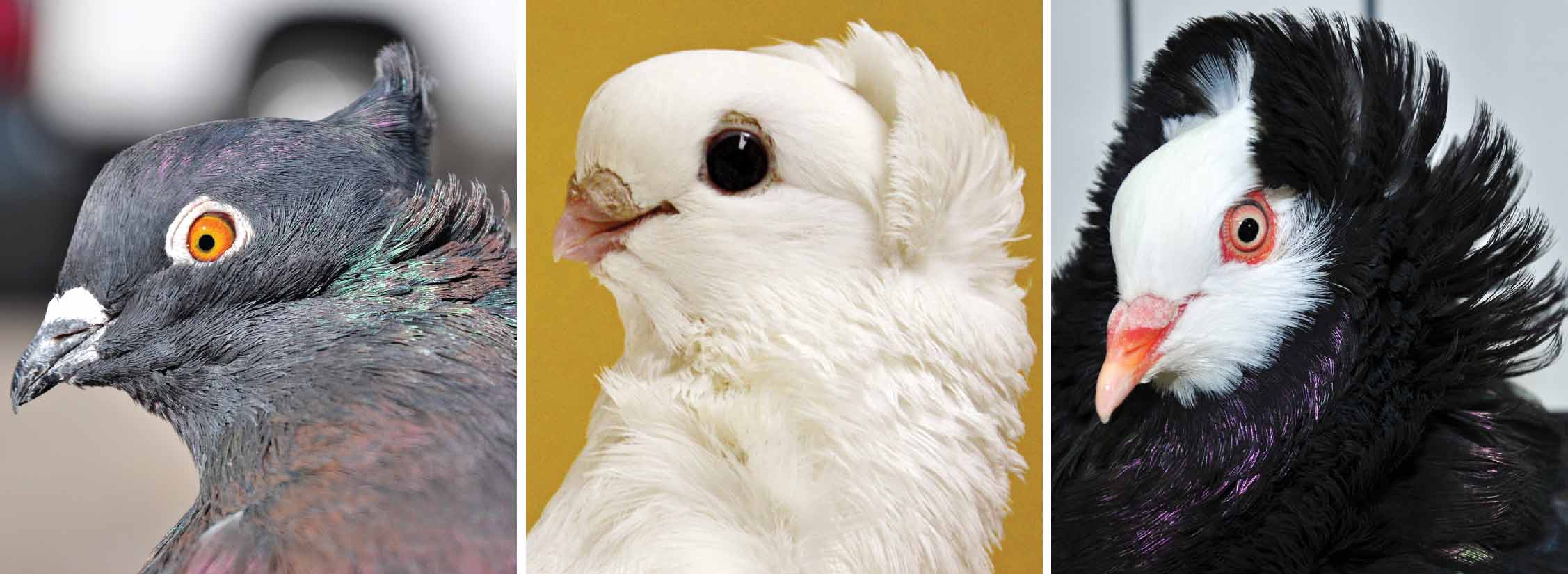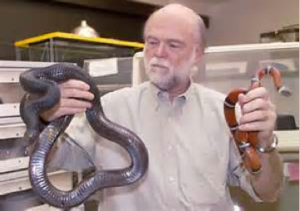Emily Landeen from the Presgraves Lab will be presenting her work about the large X effect and its implications on speciation. Sex chromosomes play an important role in hybrid incompatibilities, a pattern Emily has been investigating in her thesis research.
Category Archives: Seminars
EEB Seminar, Friday, May 3: “Host-parasite coevolution between sigma virus and Drosophila”
Dr. Marta Wayne, Associate Professor of the Department of Biology at the University of  Florida, is presenting a talk titled, “Host-parasite coevolution between sigma virus and Drosophila,” on Friday, May 3.
Florida, is presenting a talk titled, “Host-parasite coevolution between sigma virus and Drosophila,” on Friday, May 3.
“I study evolutionary genetics because I am fascinated by the world around us. With every small breakthrough, more questions emerge. That infinite variety and complexity, accompanied by the illusion that ‘the answer’ is just around the corner, keeps me in science. At the same time, the interplay between genetic knowledge and society, particularly with respect to ethics, informs my research and teaching.”
EEB Seminar, Friday, April 26: “The evolution of sex within populations: testing theory”
Dr. Aneil Agrawal, Associate Professor of Ecology and Evolutionary Biology of the University of Toronto, is presenting a talk titled, “The evolution of sex within populations: testing theory,” on Friday, April 26.
He is an evolutionary geneticist who is interested in general properties of genetic systems more so than the history or function of specific genes. He asks questions such as: Are sexually-derived offspring more fit than asexually-derived offspring (and why)? Do mutation and recombination rates change with condition? If so, why would it matter? To what extent are populations burdened by deleterious alleles? How do ecological and genetic factors affect this load? “I approach these problems both theoretically and empirically using the mighty fruit fly, Drosophila melanogaster.”
GWIS talk today
Graduate Women in Science (GWIS) is hosting a seminar today that might interest some graduate students:
“Leveraging Opportunities in Graduate School to Build the Career You Want”
Invited Speaker: Wendi Heinzelman, Ph.D., Professor, Department of Electrical & Computer Engineering, Dean of Graduate Studies for Arts, Sciences, Engineering
University of Rochester
Natapow Room (1-9545) 3:00 pm
Donut talk today
EEB Seminar, Friday, April 19: “Exploring lineage-specific genes in Lophotrochozoa by comparative genomics”
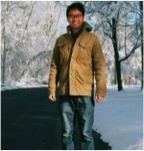 Longjun Wu, a second-year graduate student in the Lambert lab, will be giving a talk entitled, “Exploring lineage-specific genes in Lophotrochozoa by comparative genomics,” on Friday, April 19th. Longjun comes from the Southeast coast of China, where he received his B.S. in Biology from Xiamen University, studying the genome evolution of Amphixous in Dr. Yiquan Wang’s lab.
Longjun Wu, a second-year graduate student in the Lambert lab, will be giving a talk entitled, “Exploring lineage-specific genes in Lophotrochozoa by comparative genomics,” on Friday, April 19th. Longjun comes from the Southeast coast of China, where he received his B.S. in Biology from Xiamen University, studying the genome evolution of Amphixous in Dr. Yiquan Wang’s lab.
Professional Development Lectures
For anyone looking for more professional development, the following two lectures are taking place tomorrow.
Seminar: Understanding the Landscape of Career Options in Biotech & Pharmaceutical CompaniesBrad Hartman, SpeakerFriday, April 12, 20139:00 to 11:00 amClass of 1962 Auditorium, Medical Center G-9425Seminar: Swimming Downstream: Networking, Interview and Resume Skills that will Impact your CareerBrad Hartman, SpeakerFriday, April 12, 201311:15-12:15pmClass of 1962 Auditorium, Medical Center G-9425
EEB Seminar, Friday, April 12: “Natural history, aesthetics, and conservation”
Dr. Harry Greene, Professor of Ecology and Evolutionary Biology, and Faculty Curator of Amphibians and Reptiles in the Museum of Vertebrates at Cornell University, is presenting a talk titled, “Natural history, aesthetics, and conservation” on Friday, April 12.
Dr. Greene received his B.A. from Texas Wesleyan College in 1968, then served three years as an army medic. He earned his M.A. from University of Texas at Arlington in 1973 and Ph.D. from the University of Tennessee, Knoxville, in 1977. For two decades he was a professor and curator of herpetology in the Museum of Vertebrate Zoology, University of California, Berkeley, then moved to Cornell in 1999. Dr. Greene has taught natural history of the vertebrates, herpetology, introductory biology, evolution and biodiversity, desert ecology, and graduate field ecology; his research has focused on snakes and other predators in the Americas, Africa, and Eurasia, with emphasis on evolution, ecology, and conservation. His honors include the Berkeley Distinguished Teaching Award, American Society of Naturalists’ Edward Osborne Wilson Award, elected fellow of the American Association for the Advancement of Science and California Academy of Sciences, 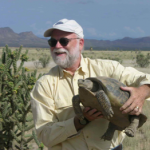 president of the American Society of Ichthyologists and Herpetologists, and Cornell’s Stephen H. Weiss Presidential Fellowship. Dr. Greene’s Snakes: the Evolution of Mystery in Nature, won a PEN Literary Award and made the New York Times’ list of 100 Most Notable Books. His next book, Tracks and Shadows: Field Biology as Art, will be published later in 2013.
president of the American Society of Ichthyologists and Herpetologists, and Cornell’s Stephen H. Weiss Presidential Fellowship. Dr. Greene’s Snakes: the Evolution of Mystery in Nature, won a PEN Literary Award and made the New York Times’ list of 100 Most Notable Books. His next book, Tracks and Shadows: Field Biology as Art, will be published later in 2013.
EEB Seminar, Friday, February 22: “Posterior growth and shell formation in Ilyanassa”
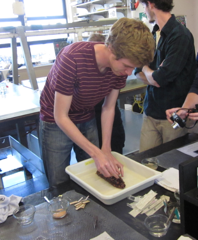 Adam Johnson, a member of the Lambert lab, will be giving a talk titled, “Posterior growth and shell formation in Ilyanassa” on Friday, February 22nd. Adam received his Biology BA at the University of Kansas, and worked with Jennifer Gleason and Paulyn Cartwright on mating behavior and Cnidarian sensory evolution, respectively. Adam is a 2nd year PhD student.
Adam Johnson, a member of the Lambert lab, will be giving a talk titled, “Posterior growth and shell formation in Ilyanassa” on Friday, February 22nd. Adam received his Biology BA at the University of Kansas, and worked with Jennifer Gleason and Paulyn Cartwright on mating behavior and Cnidarian sensory evolution, respectively. Adam is a 2nd year PhD student.
EEB Seminar, Friday, February 15: “Mutualism stability and gall induction in the fig and fig wasp interaction”
 Dr. Ellen Martinson, a post-doc in the Werren Lab, is presenting an EEB seminar entitled “Mutualism stability and gall induction in the fig and fig wasp interaction,” on Friday, February 15. Ellen recently received her PhD in Ecology and Evolutionary Biology at the University of Arizona under Elizabeth (Betsy) Arnold and Jeremiah Hackett.
Dr. Ellen Martinson, a post-doc in the Werren Lab, is presenting an EEB seminar entitled “Mutualism stability and gall induction in the fig and fig wasp interaction,” on Friday, February 15. Ellen recently received her PhD in Ecology and Evolutionary Biology at the University of Arizona under Elizabeth (Betsy) Arnold and Jeremiah Hackett.

